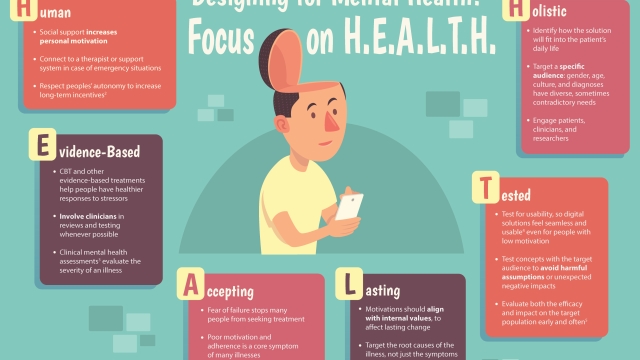Understanding the importance of mental health care and the role of therapy trainings is crucial in unlocking mental wellness. In today’s fast-paced and demanding world, many individuals struggle with various mental health challenges such as anxiety, depression, and stress. These challenges can often take a toll on overall well-being and hinder one’s ability to lead a fulfilling and productive life.
That’s where therapy trainings come into play. These specialized programs are designed to equip therapists with the necessary knowledge, skills, and techniques to support and guide individuals towards better mental health. Through a comprehensive curriculum, therapy trainings provide professionals with a deep understanding of different therapy approaches, assessment tools, and treatment modalities. This enables them to tailor their therapeutic interventions and interventions to meet the unique needs of each client, fostering a more effective and impactful therapeutic journey.
The Importance of Mental Health Care
Mental Health Care plays a crucial role in our overall well-being. It focuses on maintaining and improving our mental, emotional, and psychological health. Just as we prioritize taking care of our physical health, it is equally important to pay attention to our mental well-being.

By seeking Mental Health Care, individuals can address and manage a wide range of mental health issues. From anxiety and depression to stress and trauma, therapy provides a safe and supportive space to explore and understand the complexities of our thoughts and emotions. Through therapy, individuals can develop effective coping mechanisms and enhance their overall quality of life.
Therapy Trainings are key in ensuring effective mental health care for all. These trainings equip mental health professionals with the necessary knowledge and skills to support individuals in their journey towards holistic well-being. Through comprehensive training programs, therapists gain expertise in various therapeutic approaches, such as cognitive-behavioral therapy, person-centered therapy, and mindfulness-based therapy.
Ultimately, the importance of Mental Health Care and Therapy Trainings lies in their potential to transform lives. They empower individuals to navigate life’s challenges, promote self-awareness, and foster resilience. By investing in Mental Health Care and supporting therapists through proper training, we can create a society that values and prioritizes mental wellness for all its members.
What to Expect in Therapy Trainings
In therapy trainings, participants can expect to gain a deep understanding of mental health care and develop practical skills to support individuals in need. These trainings provide a comprehensive overview of theoretical frameworks, therapeutic techniques, and ethical considerations. Additionally, participants are encouraged to explore self-reflection and personal growth as they embark on their journey to becoming mental health professionals.
The first component of therapy trainings typically involves learning about the different approaches to mental health care. Participants are introduced to various theoretical frameworks such as cognitive-behavioral therapy, psychodynamic therapy, and humanistic therapy. Through lectures and discussions, trainees acquire a foundation in these approaches, enabling them to tailor their interventions based on client needs and treatment goals.
The second phase of therapy trainings is focused on developing practical skills. Trainees are given opportunities to practice therapeutic techniques through role-plays and simulated client sessions. These hands-on exercises foster a deeper understanding of the therapeutic process and enhance trainees’ ability to establish rapport, actively listen, and provide empathetic support. Trainees also learn how to conduct assessments, formulate treatment plans, and implement evidence-based interventions.
The final aspect of therapy trainings involves exploring the ethical considerations and responsibilities of mental health professionals. Participants learn about maintaining client confidentiality, boundaries, and the importance of ongoing professional development. Ethical decision-making and cultural sensitivity are also emphasized, equipping trainees with the necessary knowledge and skills to navigate complex situations that may arise during their practice.
By engaging in therapy trainings, individuals can expect to gain the knowledge, skills, and perspectives necessary to embark on a fulfilling career in mental health care. These comprehensive trainings provide a strong foundation in theory, practical skills, and ethical awareness that are essential for effective and compassionate therapeutic interventions.
Benefits of Therapy Trainings
-
Enhanced Skills and Knowledge: Therapy trainings provide mental health care professionals with an opportunity to expand their skills and knowledge in the field. These trainings cover a wide range of topics, including different therapy techniques, assessment tools, and approaches to addressing various mental health conditions. By participating in these trainings, therapists can gain a deeper understanding of different therapeutic modalities and learn new techniques to better support their clients.
-
Continued Professional Development: Engaging in therapy trainings is an essential part of continued professional development for mental health care practitioners. These trainings offer a platform for therapists to stay updated with the latest research, advancements in the field, and evidence-based practices. By continuously honing their skills through trainings, therapists can ensure they are providing the best possible care for their clients and maintaining high professional standards.
-
Networking and Collaboration Opportunities: Therapy trainings also provide an environment for mental health care professionals to connect and collaborate with their peers. These trainings often include interactive workshops, group discussions, and case studies, which encourage professionals to share their experiences and learn from one another. Through these networking opportunities, therapists can build a supportive professional community that fosters growth, collaboration, and knowledge sharing.
Remember to always consult a qualified healthcare professional for personalized advice and treatment options related to mental health care and therapy trainings.






